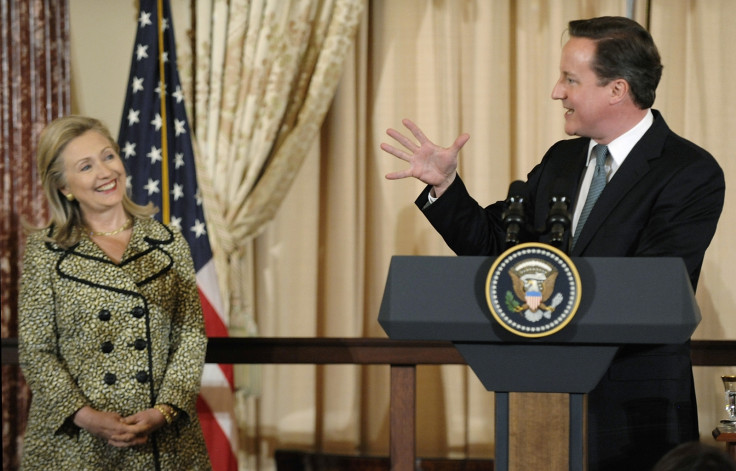US election 2016: Wall Street to Hillary Clinton: Stop bank bashing or suffer Miliband's fate

Wall Street has a message for Democratic presidential candidates Hillary Clinton and Bernie Sanders: stop the berating of banks or suffer the same fate as former Labour leader Ed Miliband.
According to Politico, financial executives say Miliband's anti-bank rhetoric led to his party's defeat in the general elections last week and could mean the same for Clinton.
"Cameron embraced the role of the financial sector in growing the UK economy and creating jobs, never once criticising hedge funds, banks or the wealthy," a top executive at one of Wall Street's largest firms told Politico. "Miliband ran against hedge funds and bankers, promising bonus and mansion taxes and lost big. Is that a lesson for Hillary as well?"
Another executive from another Wall Street largest firms, who also refused to be identified for fear of backlash, said that Democrat Senator Elizabeth Warren's commitment to regulate banks will backfire on the party in the 2016 presidential elections.
There are two lessons here. One is the Miliband lesson. The US has now seen that people in the UK don't really like this focus on inequality and redistribution. It's not where people are. And the second is that conservatives were very effective in saying they were for working people but keeping the focus on work not excessive government intervention and benefits.
"Seems like there might be some political lessons for the US out of the UK election - with Miliband's Warren style, anti-business, anti-bank rhetoric clearly falling flat with the general publish even as the press ate it up," the executive said. "And the Edelman trust barometer actually shows that British voters are more distrustful and wary of the banks than here in the US."
Conservative analyst agreed and told Politico that Clinton should heed the election's results.
Douglas Holtz-Eakin of the American Action Forum said: "There are two lessons here. One is the Miliband lesson. The US has now seen that people in the UK don't really like this focus on inequality and redistribution. It's not where people are. And the second is that conservatives were very effective in saying they were for working people but keeping the focus on work not excessive government intervention and benefits."
According to Politico, financial reform advocates believe that comparing the UK elections to the upcoming US presidential election is "delusional".
Dennis Kelleher of Better Markets told Politico, "Claiming the five-week sprint known as the UK election—and the Scottish freedom campaign—means anything for the US is nothing more than wishful thinking by Wall Street's spinners. Secretary Clinton will be spelling out pro-growth agendas that also protect the American people from Wall Street's dangerous too big to fail banks. It's not either/or. It's both."
Former Cameron aide Jim Messina, on the other hand, has said that he believes the Conservative Party's win is good news for the Democratic powerhouse. Messina, who is also a former Obama aide, claimed that Cameron is "a progressive leader" who has "pushed for gay marriage and a world climate change deal and proposed to increase child care subsidies and cut taxes on the minimum wage."
For Messina, Cameron's win, and Miliband's devastating loss, is an indication of what can happen for Clinton in 2016.
© Copyright IBTimes 2025. All rights reserved.






















